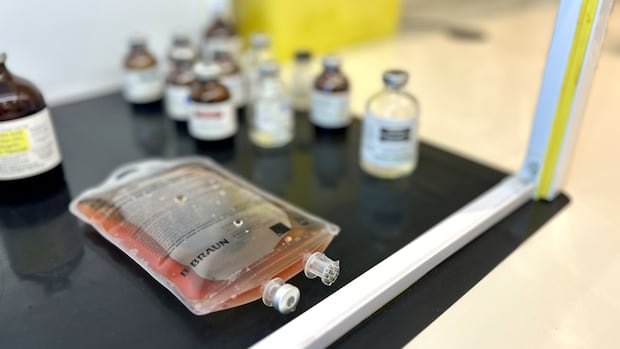This story is part of CBC Health's Second Opinion, a weekly analysis of health and medical science news emailed to subscribers on Saturday mornings. If you haven't subscribed yet, you can do that by clicking here .
Intravenous drips have long been used in hospitals to send life-saving drugs right into patients’ veins. They’re also a booming business in wellness spas, where customers are told that pricey IV cocktails can boost their immunity, combat hangovers or even offset the grueling side effects of chemotherapy.
However, medical experts warn there’s no evidence to back up many clinics’ bold promises — and there are a range of possible health risks.
IV hydration clinics are part of the rapidly growing medical spa industry , which exploded from roughly 5,000 across the U.S. in 2018 to nearly 9,000 just four years later. There’s no shortage of them in major Canadian cities either, with med spas typically charging upwards of $200 for customized supplement cocktails, which can include electrolytes, magnesium and various vitamins. In advertisements, providers claim they can help treat a range of conditions.
So who’s regulating this emerging industry? There's no one regulatory body acting as a watchdog in either the U.S. and Canada, according to recent research and reporting by CBC News.
A first-of-its-kind research paper, published ear
Continue Reading on CBC News
This preview shows approximately 15% of the article. Read the full story on the publisher's website to support quality journalism.
